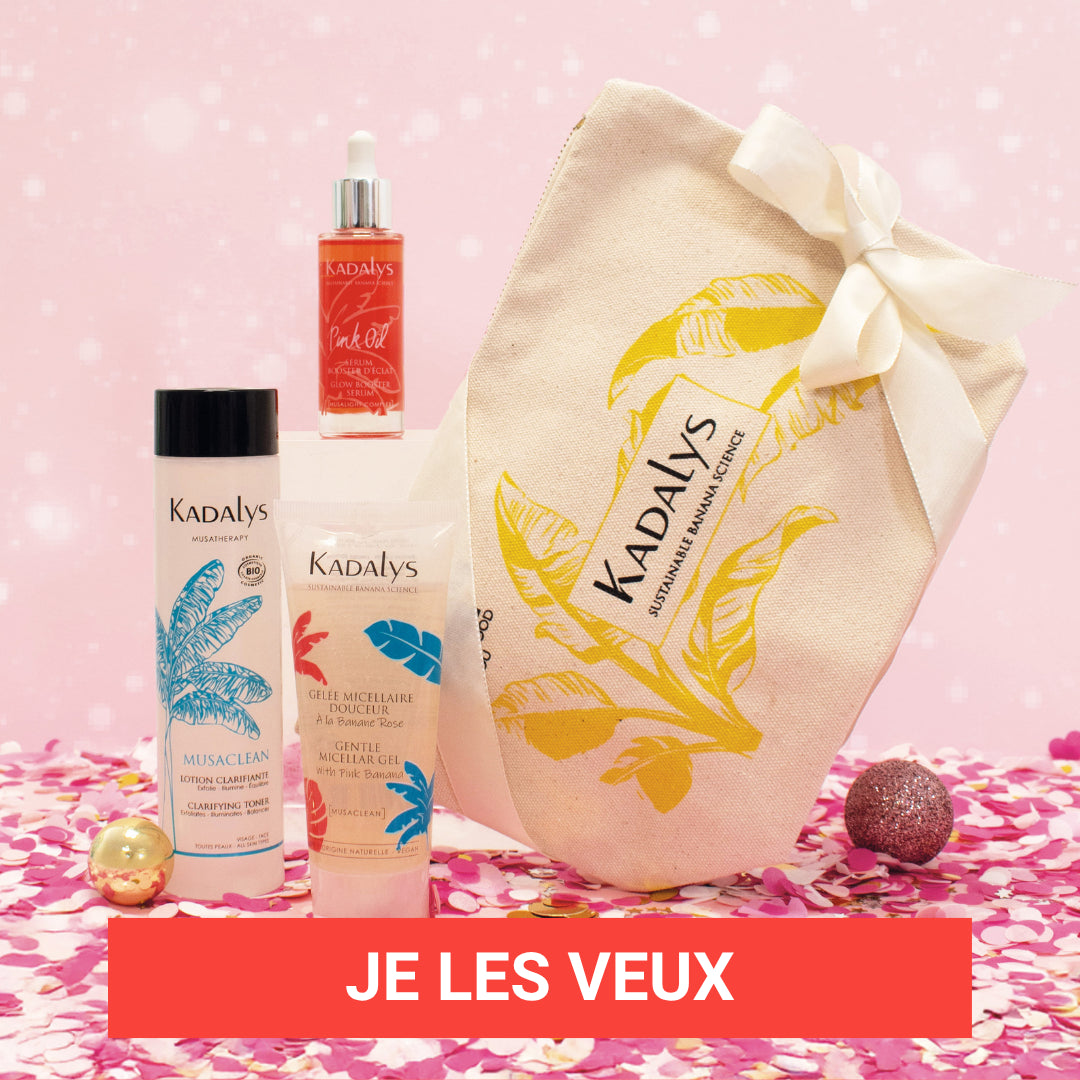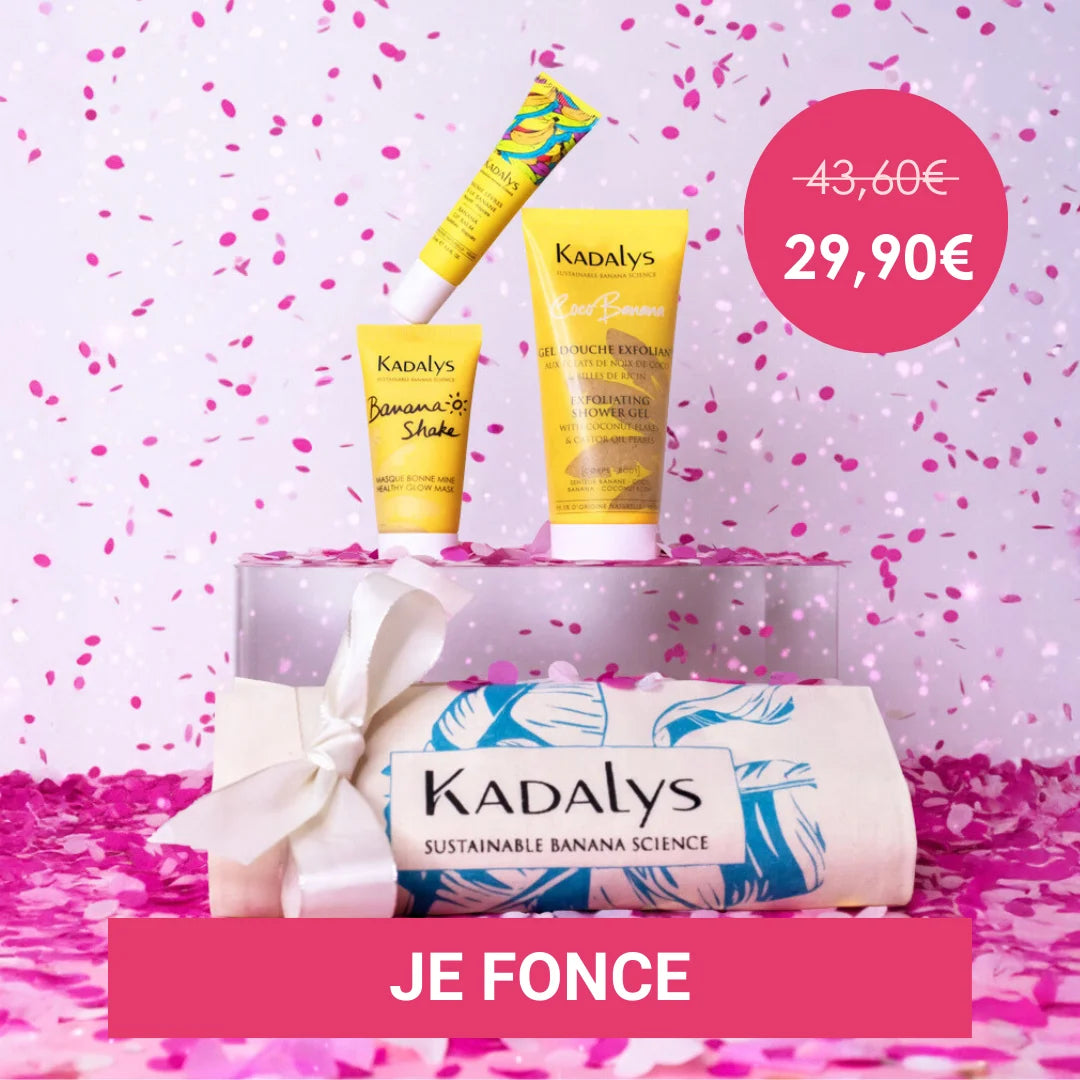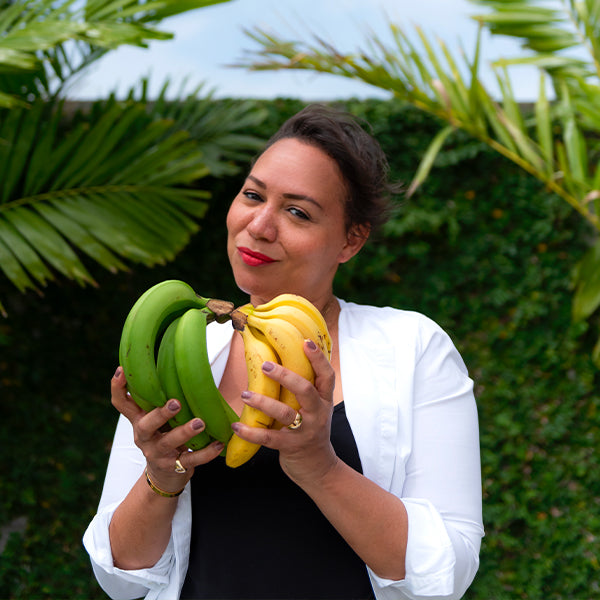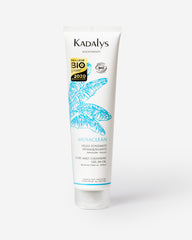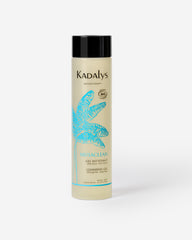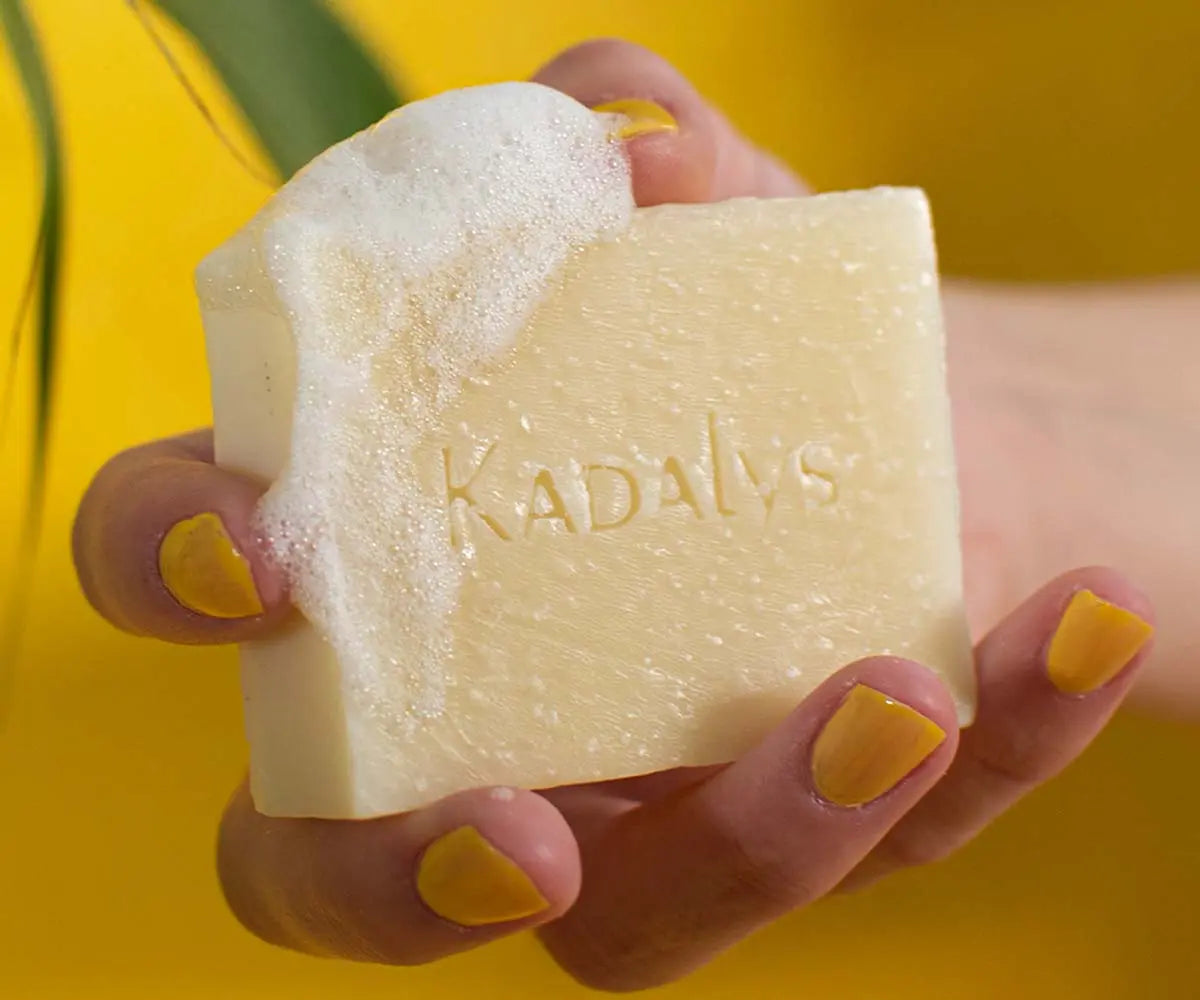
The Purifier, our natural organic soap, cold saponified
Solid cosmetics have been part of our beauty routine for some time. And for good reason, they offer numerous advantages both from the point of view of the wallet and for the planet.
Among these little gems that do good for the skin while limiting their carbon footprint, cold saponified soap is one of the must-haves for deeply hydrating, soothing dry and sensitive skin and purifying the epidermis without attacking it.
The cold saponification method has largely proven itself and contributes, among other things, to preserving the virtues of the vegetable oils and natural ingredients used.
Result ? Your skin is visibly clearer and radiant. Why adopt solid soap in your ritual? What you need to know about this new (or almost) trend that will revolutionize green beauty routines!
What is cold saponification?
If it was once forgotten in the face of the excitement of shower gels, solid soap is making a comeback and establishing itself in our beauty routine for the long term. Like the fashion of the 70s which reinvested our wardrobes, this hygiene product is making a comeback after having deserted our bathrooms. And the least we can say is that it has nothing to envy of its liquid counterparts, quite the contrary!
Thanks to new, even more natural and plant-based formulations, it gives your skin intense hydration and optimal protection. But between superfatted soap , cold saponified ... It's difficult to find your way around. We introduce you to the oh-so-subtle art of saponification to learn everything about artisanal soap making like a true master soap maker.
Cold saponification, quezako?
For some time now, everyone has been swearing by cold process soap. However, there is nothing new under the sun! This 100% artisanal and handmade method has been practiced since the dawn of time to design natural soaps, precursors of organic and rich in glycerin.
The antithesis of industrial soap which is essentially composed of palm oil or tallow (beef fat) heated to high temperature, cold saponified soap relies on a complex of vegetable oils selected for their active properties on the skin, butters, solid oils and natural ingredients. Only solid butters and oils are melted at low temperature to obtain a liquid paste.
Vegetable oils do not undergo any thermal transformation to retain all their power and benefits in the soap. Another notable difference with industrial soaps which earns it the title of superfatted soap: its high content and excess oil.
What is superfatted soap?
As its name suggests, superfatted soap benefits from a surplus of oil, necessary to create the saponification reaction. It is enriched with nourishing superfatting agents such as sweet almond oil or shea butter which has the double advantage of cleansing the skin without ever drying it out.
Unlike the soap making giants who use excess soda, superfatted soap contains 5% to 8% non-saponified oil which will help protect and intensely nourish skin, even the driest, by reducing the risk of skin dryness.
As effective as shower oil, the star of solid cosmetics comes to the rescue of sensitive and atopic skin . It is particularly recommended during winter, a period when the health of your skin is put to the test! Superfatted, superhydrating, supernatural!
The advantages of cold saponification: 4 good reasons to adopt organic and natural cold saponified soap
Cold saponification has many more than one shot, or rather, an oil to its credit! Why rely on this saponification technique? Quite simply because it offers a plethora of benefits both for your skin and for the environment thanks to a more responsible and sustainable mode of consumption! It’s time to introduce yourself to solid cosmetics that:
Kadalys obtains the SAF logo for its superfatted natural soap
Cold saponification is an art that Kadalys assiduously cultivates! Kadalys has developed the ultimate in organic solid soap: Organic superfatted soap.
The Purifier cleanses, purifies and balances the epidermis. Cold saponified and certified organic, this superfatted solid soap enriched with bioactive green banana, jojoba oil and green tea oil can be used both on the body and on the face for visibly cleaner, softer and radiant skin. of vitality.
We definitely ignore prejudices: no, superfatted soap does not grease the skin. It only boosts your water and nutrient intake. Although it is suitable for all skin types, it is particularly recommended for oily skin by regulating sebum production.
As a bonus, it relieves irritation and redness in atopic and sensitive skin and intensely hydrates dry or even very dry skin! To test it is to adopt it!


